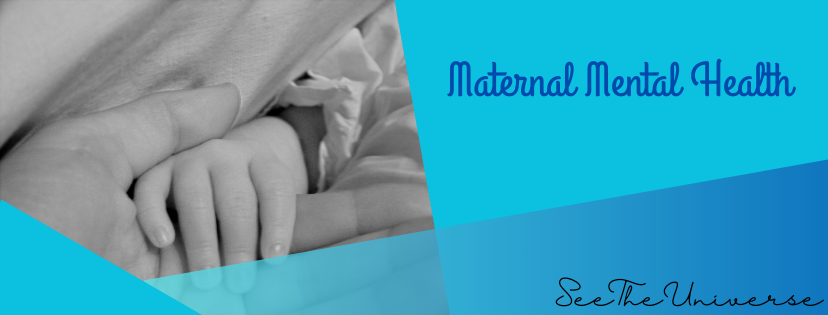Postpartum Psychosis is a serious mental health condition which is said to occur in 1 in 1000 mothers after giving birth. This condition should be treated as a medical emergency.
Signs and Symptoms:
Symptoms most often start within 2-weeks of giving birth (on rare occasions, they may not set in for several weeks), they include:
- Hallucinations – Seeing, hearing, smelling or feeling things that are not there.
- Delusions – Fears, thoughts, suspicions or beliefs that are very unlikely to be true.
- Mania – Feeling very ‘high’ and overreactive; talking or thinking too quickly, not able to keep up with yourself, being relentless or losing your inhibitions.
- Low mood – showing signs of depression, withdrawn, tearful, lack of energy, loss of appetite, trouble sleeping (outside of the normal disruption of having a baby), anxiety and feeling a frustrated / agitated.
- They may feel both manic and low moods or rapidly change between the two.
- Feeling very confused.
You should seek help immediately as Postpartum Psychosis can increase in severity at a rapid rate and can cause danger to both the mother and the baby’s safety.
Treatment:
There are various treatments that may be offered to you for Postpartum Psychosis depending on individual factors and circumstances. In some cases, your doctor may think that treatment within a hospital would be the best course of action for you; if possible you may be admitted into a mother and baby unit.
Medication:
Your GP may prescribe you medication to help treat your symptoms quickly. This will be an anti-psychotic and they are often prescribed alongside anti-depressants.
CBT & Family Intervention:
CBT – Cognitive Behavioural Therapy – is a common treatment for psychosis alongside medication. You may be referred for CBT if you have suffered with psychosis prior to becoming pregnant, as this is a good way to manage the changes that you are experiencing in a healthy way and try to reduce the likelihood of a flare-up of symptoms.
Family intervention is very helpful in providing support for family and loved ones during this time. It is a good way for them to communicate with you and each other and come up with a course of action that may he helpful to you.
Causes of Postpartum Psychosis:
There is no definitive cause for Postpartum Psychosis, however there are some factors which may increase the risk of development.
- Family history of mental health conditions – especially is there is history of Psychosis and or Bipolar Disorder.
- If you yourself have a diagnosis of Bipolar Disorder or Schizophrenia – you may be at risk of developing Postpartum Psychosis. Speak with your GP in the early stages of your pregnancy to discuss this and put a potential plan in place should this occur. It is good to have a plan in advance if you have concerns.
- A traumatic birth or pregnancy.
- If you have stopped taking anti-psychotics during pregnancy – Again it is good practice to seep in contact with your GP in cases such as this or if you have a therapist or support group to hand, continue to reach out for support, this way if you do show any signs or symptoms they can be supported at the earliest stage.
Sources:
NHS – Overview of Postpartum Psychosis



One Reply to “Postpartum Psychosis – A Fact File”